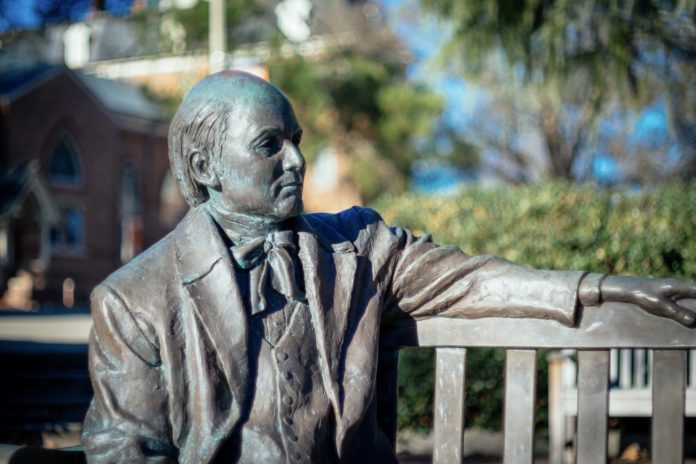MACON — Two professors from Mercer University’s School of Engineering have earned fellowships to conduct research with NASA this summer. Dr. Behnam Kamali, professor of electrical and computer engineering, and Dr. Loren R. Sumner, associate professor of mechanical engineering, left Monday to participate in the NASA Faculty Fellowship Program at Glenn Research Center in Cleveland, Ohio.
The two are working on separate research projects for NASA. Dr. Kamali will research communications technologies in the global and national aviation system and Dr. Sumner will research water use in a hydrogen fuel cell that may one day power the space ship NASA takes to Mars. Each professor will spend 10 weeks at Glenn, conducting research with NASA scientists and engineers, as well as other university professors and private companies engaged in the projects. The Fellowships are renewable for a second year, and each professor may be accompanied by a student during the second year.
Dr. Kamali will research the feasibility of two technologies slated for inclusion in a worldwide effort to modernize and standardize the civil aviation system. The Next Generation Air Transportation System International, or NextGen, includes the goals of modernizing communications systems, airports and airplanes themselves by 2025. Within the communications portion the group is looking at a number of modern technologies to replace the current, antiquated system of communication. The goal is to create a “digital network-centric global aeronautical system for communications, navigation, and surveillance,” he said. Dr. Kamali’s efforts will focus on the ground communication system, which airplanes, airlines and airports use to communicate once planes land, at the gate, and before takeoff. Dr. Kamali will examine two of the leading technologies slated for this system, VDL-2 and Wi-Max, two advanced digital communication technologies.
“If you go digital, everything is possible,” Dr. Kamali said. “For people dealing with aeronautical technology, this a very exciting time, because we are in the midst of technological transformation in civil aviation.”
Dr. Sumner’s research will help a team of scientists that is working on a fuel cell system to power future space ships, which is part of NASA’s Explorer Technical Development Team. The technology will be essential to provide a reusable, renewable and reliable energy source for long-term space travel. Fuel cells use a reaction to convert hydrogen into energy, with water as a byproduct. Fuels cells can also be used to create hydrogen from water, providing a closed loop system to store and use energy – which will be gathered from solar arrays harnessing the sun’s energy to be converted to provide energy for the fuel cell system. Dr. Sumner’s research will focus on the wicking technology in a hydrogen fuel cell, modeling water usage to ensure that the cell has enough water to sustain the reaction that creates energy, without flooding it.
“This will be important for long-term energy storage for planetary exploration. If you want to travel to Mars, you have to have a way to store and convert energy effectively,” Dr. Sumner said.
About Mercer University
Founded in 1833, Mercer University is a dynamic and comprehensive center of undergraduate, graduate and professional education. The University enrolls more than 8,000 students in 11 schools and colleges – liberal arts, law, pharmacy, medicine, business, engineering, education, theology, music, nursing and continuing and professional studies – on major campuses in Macon, Atlanta and Savannah and at three regional academic centers across the state. Mercer is affiliated with two teaching hospitals — Memorial University Medical Center in Savannah and the Medical Center of Central Georgia in Macon, and has educational partnerships with Warner Robins Air Logistics Center in Warner Robins and Piedmont Healthcare in Atlanta. The University operates an academic press and a performing arts center in Macon and an engineering research center in Warner Robins. Mercer is the only private university in Georgia to field an NCAA Division I athletic program. For more information, visit www.mercer.edu.
— 30 —










